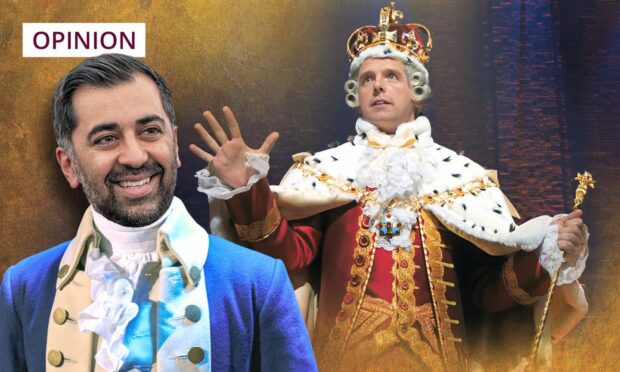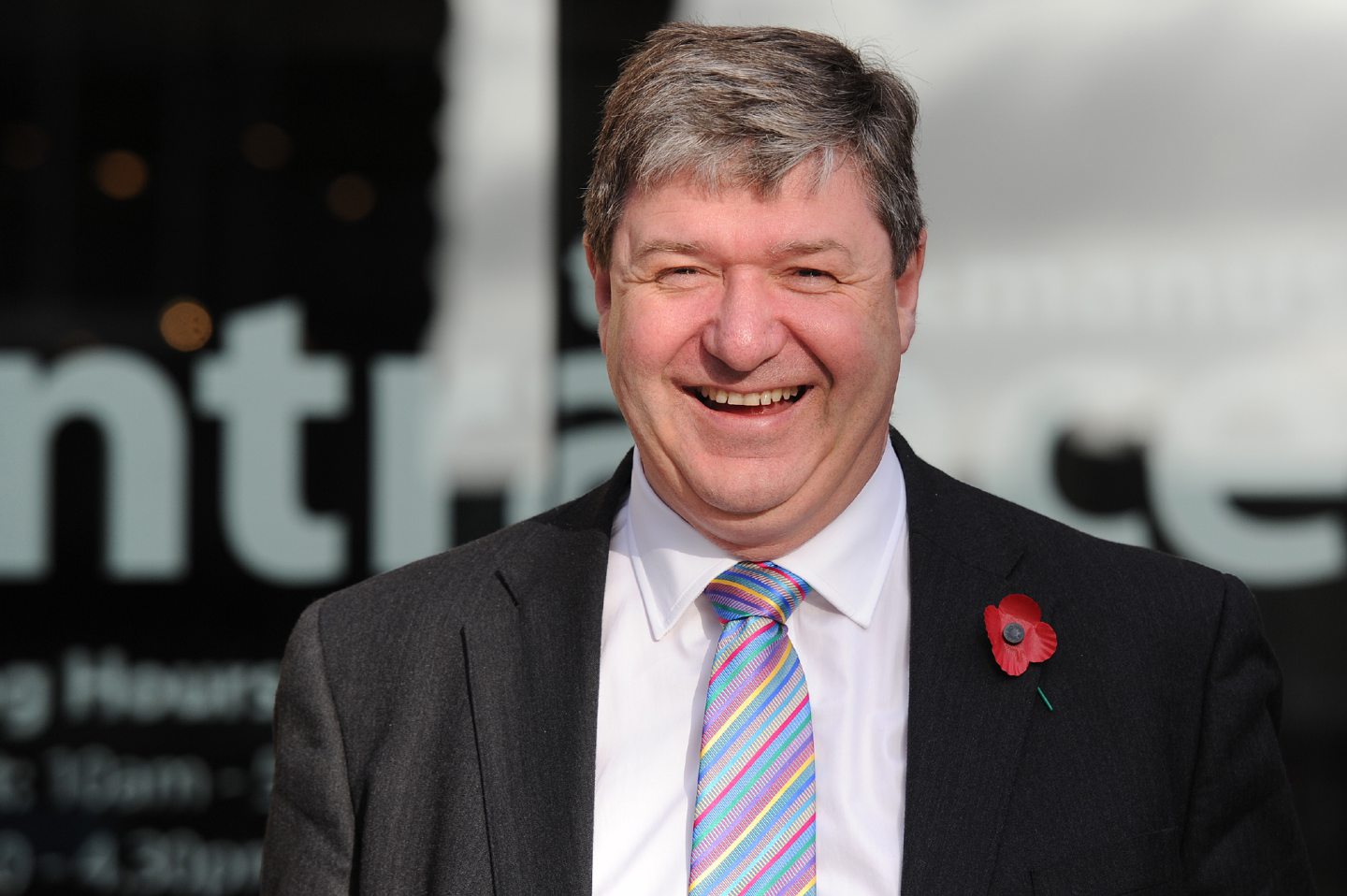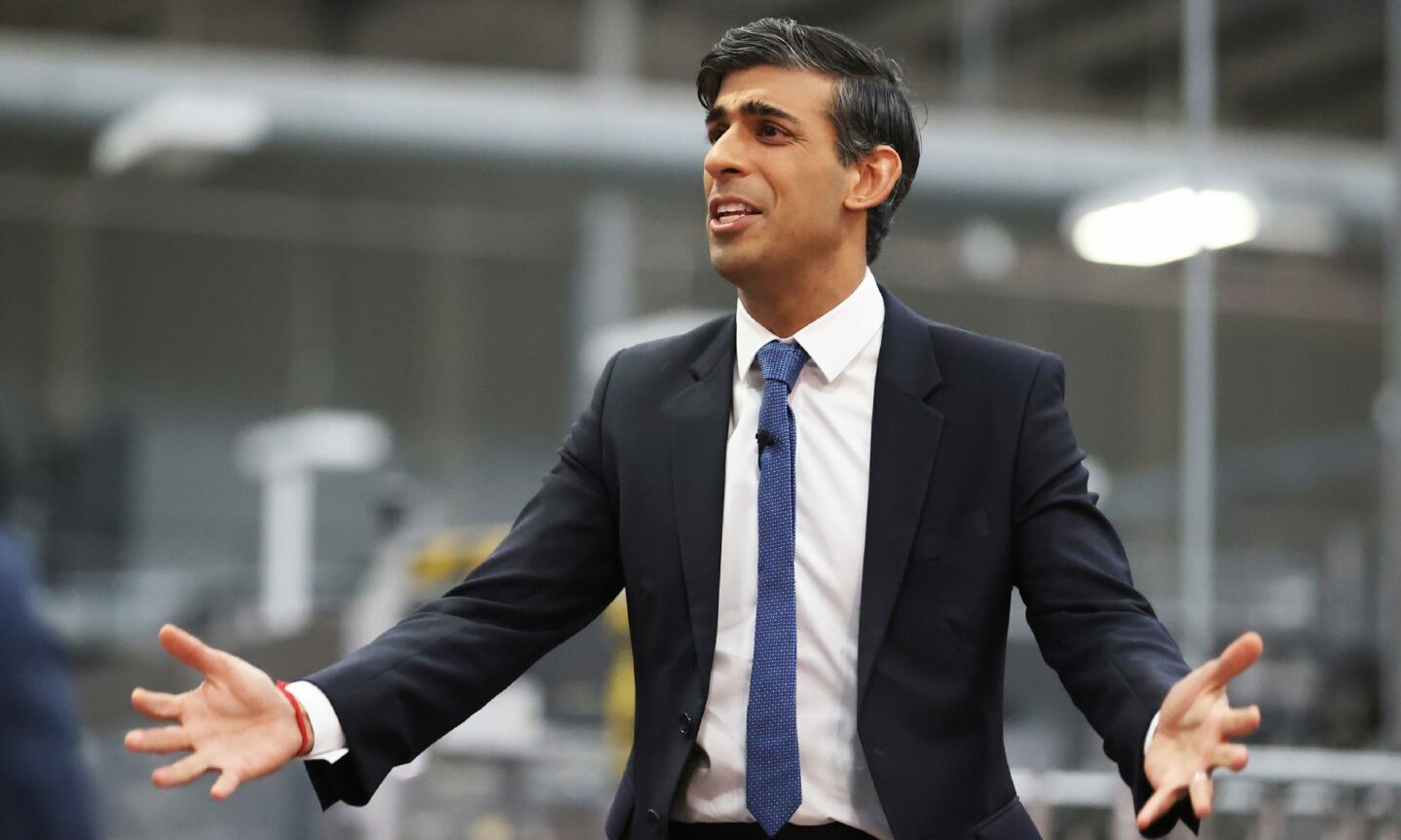The most pernicious popular culture influence on politics in recent years has been the so-called hip-hop musical, Hamilton.
Since 2017, it has cast a shadow over Westminster (almost literally – it is on at a theatre just up the road from parliament). The show centres on high US ideals at the time of American independence, at the expense of the mucky compromise necessary for day-to-day politics.
It arrives in Edinburgh next spring, on a UK tour. Buckle up for the avalanche of opinion pieces and mentions in Holyrood, not least due to the Scottish roots of the historical character who gives the show its name. Humza Yousaf will seek to position himself as wily George Washington against Douglas Ross’s foolish King George.
Hamilton engenders misplaced hype and overblown acclaim (Hamilton is just a musical. There’s as much hip-hop in it as in my music collection – and, to give you an idea how much that is, I went to see Billy Joel last month).
But there is a key scene and song that does translate to today’s politics. And that centres on “the room where it happens”.
It’s a phrase that has already permeated the lexicon, because it encapsulates a common phenomenon in politics.

There are plenty of blowhards in Whitehall and Holyrood who will claim unique insight, but there is a much smaller cohort of folk who have been in the room where it happens – the offices and backrooms where decisions are taken, agendas adopted, and history made, with few witnesses and even less democratic input.
And that is the starting point for a speculative game growing in Westminster just now, built on the very reasonable assumption that no one will win the next general election.
Despite Labour’s whopping poll lead, they start a long way back in terms of seats. Rishi Sunak can no longer see a narrow path to victory, but a six-lane highway built over every low traffic neighbourhood and asthma clinic in the country.
With every by-election the evidence grows that the Lib Dems are back in business and may prove crucial to the post election arithmetic in 2024.
Then there’s the SNP and DUP, guaranteed to return enough MPs to form part of the equation, if anyone will listen to their well worn demands.
Identify the key players
A hung parliament, as per 2010, will bring a new set of negotiations and negotiators. There’s value in identifying at this stage who the key players may be.
Monitoring the right people for policy positions or even personal relationships across the divide can give a clue as to what might emerge from coalition discussions or informal offers of support in 12 months’ time. If you’re identified as influential now, you can look forward to a year of fine and free lunches courtesy of journalists and your fellow MPs, keen to hitch their star to another on the rise.
Given his experience in the Scotland Office and within his party, Orkney and Shetland MP Alistair Carmichael is nailed on to join the Lib Dem negotiating team. And he’s not the only one who will ensure Scotland’s voice forms part of the discussion.
Fife MP and current Lib Dem chief whip Wendy Chamberlain is mooted as another who would join the discussions. As a former police officer, she and Carmichael would be well fixed to adopt a good cop, bad cop routine in any tricky conversations. Lib Dempsey and Makepeace, if you will.
A new chapter or returning characters?
Labour’s team in 2010 was Harriet Harman, Ed Balls, Ed Miliband, Andrew Adonis and Peter Mandelson. Miliband endures. But, with his growing influence over Keir Starmer, Mandelson making yet another comeback wouldn’t be surprising.
Rachel Reeves, as shadow chancellor and ultimate arbiter or any financial element of a deal, would likely lead the team. And Labour, unusually, has talent to choose from to make up the numbers. Shadow education secretary Bridget Phillipson and unheralded election supremo Shabana Mahmood may merit a place in the room where it happens.
The Tory team will depend on who their leader is. If Sunak stays on, then expect William Hague to have a role, along with more moderate voices like Jeremy Hunt or two former advisers standing in safe enough seats that they’ll definitely be MPs by then – George Osborne’s bag carrier, Rupert Harrison and Theresa May’s right-hand man, Nick Timothy.
Should Sunak quit, then all bets are off, as the likes of Kemi Badenoch or Suella Braverman try to carve up a deal with the DUP based on crackpot culture war policies, like undoing equalities legislation or teaching Carry On movies in schools.
Hamilton-mania in Scotland in spring 2024 and a hung parliament come autumn of that year are as close to cast-iron predictions as you can get. Preparing for both – by writing zingers for your Holyrood speeches or monitoring who is on manoeuvres in Westminster – is good politics, and a useful exercise during this recess.
James Millar is a political commentator, author and a former Westminster correspondent for The Sunday Post












